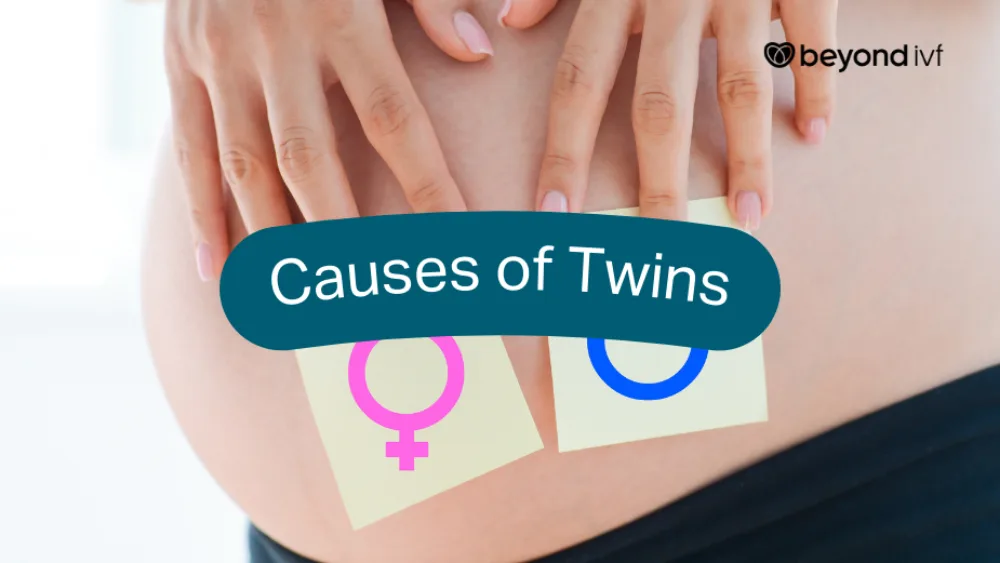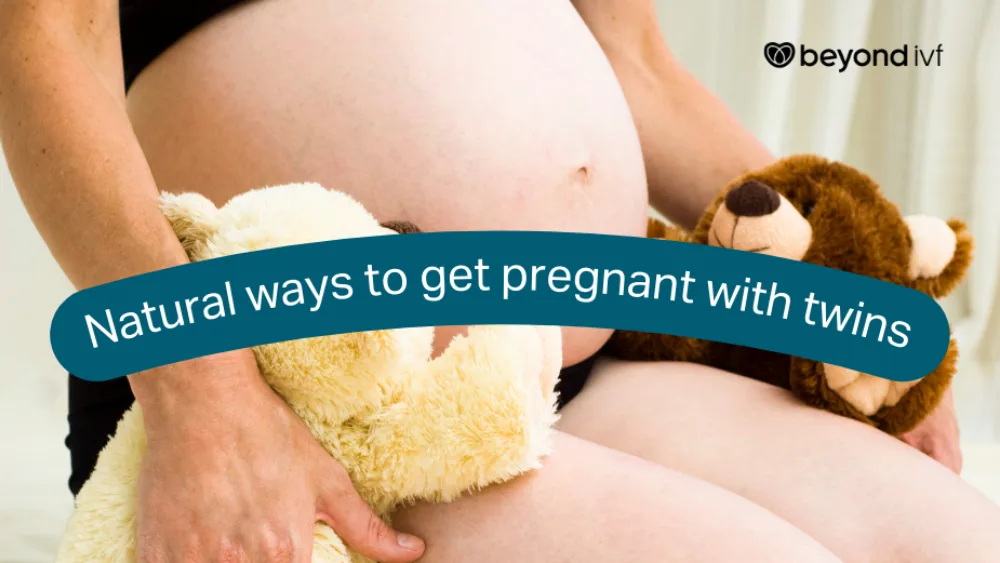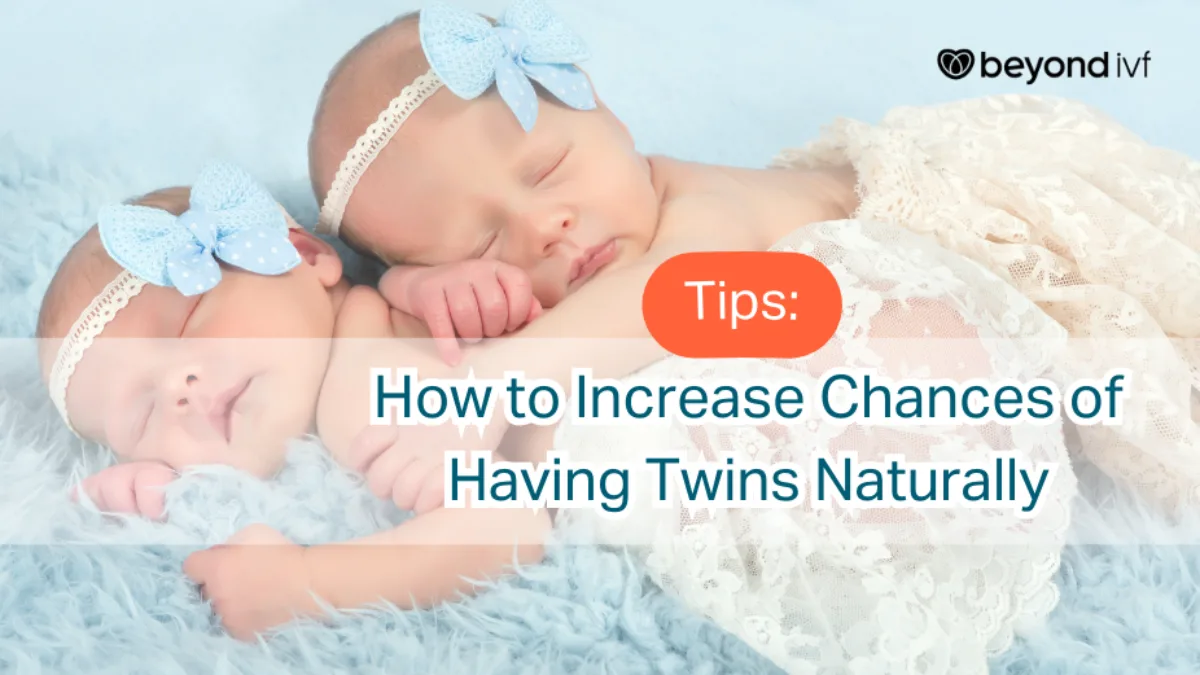Twin pregnancy usually occurs when there are two eggs that are fertilized or one fertilized egg divides into two embryos. While a twin pregnancy is considered high risk, some families may desire twins because they may be able to complete their family with one pregnancy or they have been dealing with infertility for a long time.
With some fertility treatments, like IVF and ICSI, multiple embryos may be transferred to increase the chances of pregnancy, and sometimes a multiple pregnancy can be the result. But can you plan a twin pregnancy naturally? And how can you increase your chances of a twin pregnancy?
Get to know ‘Twins’ or ‘Multiple Births’
A multiple pregnancy is a pregnancy with more than one fetus. Two fetuses are twins, three are triplets, and four are quadruplets—all are referred to as multiple pregnancy. A multiple pregnancy is considered high risk due to increased risk of complications during pregnancy and after birth. In rare cases, complications can be life-threatening.
Types of twins
Identical Twins
Identical twins, also called monozygotic twins, result from the fertilization of one egg by a single sperm, after which the fertilized egg splits into two.
The embryos are genetically identical and may share many of the same characteristics, such as appearance, hair color, and even blood group. Environmental factors may affect physical appearance in small ways. Most identical twins are the same biological sex.
Fraternal Twins
Fraternal twins, also called dizygotic twins, result from two eggs being fertilized by two sperm into two embryos that implant in the uterus and grow into two babies.
Fraternal twins may or may not look the same, be of the same biological sex, and have the same blood group. Fraternal twins are similar genetically, but not identical in the same way as monozygotic twins.
How common are twins?
According to the “Human Reproduction” journal, which collected data on the rate of twins from 165 countries between 2010 and 2015 in comparison with data from 1980 to 1985, 1.6 million twins are born each year, or 1 in 42 births will be twins.
Twins occur more commonly now (30% more than in the 1980’s) due to families waiting longer to have children and the rise of assisted reproductive technologies, especially IVF/ICSI.

Causes of Twins
- Ethnicity. Research has found that Southeast Asian women and Hispanic women are less likely than African and Caucasian women to have twins.
- Heredity. Family history of multiple pregnancies plays an important role in more twin pregnancies. However, data from ASRM found that maternal family history is more important than paternal family history when it comes to twins. Furthermore, the chances of twin pregnancy increases if the woman has a sister, mother, or maternal grandmother who gave birth to fraternal twins or if she is a fraternal twin herself.
- Age of the woman. Twin pregnancy is more likely the older the woman is. Research shows that 16% of women over the age of 45 have multiple pregnancies, with twins occurring most often. Women between 30 and 40 years have higher estrogen levels than women of any other age and ovulate more eggs each cycle.
- Pregnancy history. If the woman has been pregnant before, especially with twins, they are more likely to be pregnant with twins in their next pregnancy.
- Fertility medication. The use of medication for infertility, especially for ovarian stimulation that can cause more than one egg to be released each cycle, can increase the chances of twins.
- Assisted reproductive technology. The use of ART, such as IVF and ICSI, increases the chances of twin pregnancy as more than one embryo may be transferred into the uterus.

Natural ways to get pregnant with twins
1. Foods that can increase the chances of twins:
- Dairy contains estrogen, a female hormone, so drinking plenty of cow milk can increase the chances of twin pregnancy.
- Foods high in zinc, such as oysters, pumpkin seeds, peas, grains, and leafy greens, nourishes sperm.
- Cassava stimulates the ovaries to produce eggs and release more than one mature egg each cycle.
- Flaxseed oil is a natural supplement for preparing for pregnancy and increases the chances of twins.
(Please note that there is no guarantee that eating these foods will lead to twin pregnancy.)
2. Pregnancy while breastfeeding
Getting pregnant after breastfeeding for a long time has been shown to increase the chances of a twin pregnancy in comparison with getting pregnant when you have never breastfed or didn’t breastfeed for very long. However, there is no guarantee of twins in this scenario and many other factors influence multiple pregnancy.
3. Stop birth control pills
Stopping birth control pills after taking them for three years or more can cause suppressed hormones to function normally again and that can lead to ovulating multiple eggs, increasing the chances of twin pregnancy.
How to have twins with treatments
1. Fertility Drugs
Certain fertility drugs, such as those for ovarian stimulation, can cause more than one egg to be released during ovulation. Having sexual intercourse when multiple eggs have been released and are ready to be fertilized can lead to a multiple pregnancy.
2. Assisted Reproductive Technology (ART)
Assisted reproductive technology:
- With IVF/ICSI, more than one embryo may be transferred into the uterus, which can increase the chances of twin pregnancy.
- With intrauterine insemination (IUI), the healthiest sperm are injected directly into the uterus. Since multiple sperm are inserted, multiple pregnancies can occur.
Risks of having twins
There are many risks of having a multiple pregnancy include:
- Miscarriage
- Low-lying placenta, which can cause hemorrhage before birth
- Pregnancy complications like diabetes, pregnancy-induced hypertension, preeclampsia, and anemia
- Premature birth
- Vaginal birth is unlikely with twin pregnancy as the babies may not be in the best positions for vaginal birth
- Postpartum complications like infection, low birth weight, and higher risk of stillbirth
- Higher chances of nausea during pregnancy when compared to singleton pregnancy
Conclusions
As mentioned above, there is no guaranteed method to ensure twin pregnancy and suggestions are just to increase the chances. If you are dealing with infertility or would like to be pregnant with twins, see a doctor for a thorough health screening to see if you can get pregnant with twins and what you need to do to get your body ready. Your doctor will design the appropriate treatment plan for you. If you have any questions, please contact us on Line at @beyondivf






